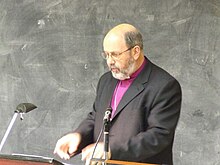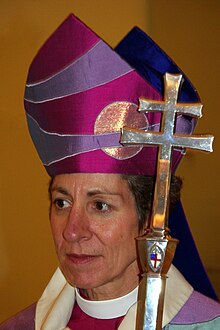
pond5.com (public domain)
By Spencer D Gear
What is the New Testament view of women in ministry?
1 Corinthians 14:26 permits open ministry by both men and women: ‘Well, my brothers and sisters, let’s summarize. When you meet together, one will sing, another will teach, another will tell some special revelation God has given, one will speak in tongues, and another will interpret what is said. But everything that is done must strengthen all of you’ (NLT). So such ministry is available to ‘brothers and sisters’.
But when Paul wrote to Timothy (who was in Ephesus) he said: ‘I do not let women teach men or have authority over them.[1] Let them listen quietly’ (1 Tim 2:12 NLT). Women are not to teach men and have authority over them seems to be the clear teaching of this verse.
Is Paul confused and contradictory or is there something else going on here? We do know from Acts 2:17 what happened on the Day of Pentecost with the outpouring of the Holy Spirit: “‘In the last days,” God says, “I will pour out my Spirit upon all people. Your sons and daughters will prophesy. Your young men will see visions, and your old men will dream dreams”’ (NLT). There will be ministry, including prophecy, for both men and women. Galatians 3:28 confirms that there is no sectarianism in Christianity, ‘There is no longer Jew or Gentile,[2] slave or free, male and female. For you are all one in Christ Jesus’ (NLT).
How do these Scriptures play out with leading Bible teachers of today? Let’s check two of them who take opposing views.

N T Wright 2007 (courtesy Wikipedia)
N T Wright, a prominent evangelical exegete and historian of Christian origins from the UK, wrote about women in ministry: ‘I believe we have seriously misread the relevant passages in the New Testament, no doubt not least through a long process of assumption, tradition, and all kinds of post-biblical and sub-biblical attitudes that have crept in to Christianity’ (Wright 2004).

John F MacArthur Jr 2014, aged 75 (courtesy Wikipedia)
On the contrary, John MacArthur Jr, a renowned USA evangelical expositor, adopts an opposite view:
‘Women may be highly gifted teachers and leaders, but those gifts are not to be exercised over men in the context of the church. That is true not because women are spiritually inferior to men but because God’s law commands it. He has ordained order in His creation—an order that reflects His own nature and therefore should be reflected in His church. Anyone ignoring or rejecting God’s order, then, weakens the church and dishonors Him’ (MacArthur 2013).
So which is it? Are women open to any ministry in the church or are they restricted so that they cannot exercise authority over men and this includes preaching to men?
Could the tradition against women having authority over men (including preaching to them) be labelled as the orthodox view? Is the pro-women in ministry perspective, advocated by N T Wright and this writer, the heterodox (heretical) perspective?
Watch the argumentation that follows.
Juices flowing

pond5.com (public domain)
On the local level here in Australia, it doesn’t take much for the anti-women in ministry juices to start flowing along with the pro-women in ministry voices. On one blog, all it took was a recommendation to a church in Brisbane and it was off and running. The context was an article on ‘Whatever Happened to Teaching in the Churches?’ by Bill Muehlenberg (17 Feb 2015). This was an excellent article that confronted this problem of the decline in teaching in many churches. Bill began the article with a stimulating observation:
Once the regular teaching of the Word of God, of doctrine, of theology, and its application in the Christian life was a mainstay of any evangelical church. It was pretty much the core activity. Yet there seems to be such a dearth of good, solid teaching in so many churches today.
Instead of proper instruction in which believers are fed with the solid meat of the Word, with emphasis on biblical doctrine and proper exposition of key biblical themes and teachings, all we seem to get in so many churches today are topical sermons.
These are often little more than pep talks with one or two verses thrown in along the way. Most of our Sunday morning sermons tend to be feel-good, how-to chats, emphasising how the Christian can be successful, happy, confident, and have a good time.
We promise folks their ‘best life now’ and give them motivational speeches, upbeat homilies, and the like. The systematic instruction and teaching of the Word of God, its core doctrinal truths, and basic Christian doctrines are almost never heard any more in so many churches today.
In the Comments section, I responded to the article:[3]
Here in Brisbane my wife and I attend a church with solid expository preaching but the services are ho-hum boring. They could easily send me to sleep. The pastor does not know how to get and retain people’s attention with his teaching (he preaches through books of the Bible).
As for the reason for this, thank Bill Hybels, Rick Warren and the seeker-sensitive marketing approach. I engaged in an email exchange with a pastor of such a church locally and he told me that I would find his church too contemporary. I visited once. It is not that being modern is the problem; it’s the lack of biblical content. There was no Bible reading in the entire service and to call the topical ditty a sermon is to redefine the word.
My nephew and his family attend one such church in my suburb of another denomination and his 8-year-old son told me, ‘We get a concert every week’.
Turning it around will take a revival, I believe.
But then the comments took a different turn. This is how the provocative juices got started with one woman’s comment, ‘I can’t find one in Brisbane also. It grieves me’.[4] Another woman’s response was: ‘Hi Sharon, Here are the details of a biblically solid church in Brisbane. I highly recommend them www.mcc777australia.org/mcca_brisbane_102.html’.[5]
That got Sharon’s juices flowing:
Thanks Ella for the link. When I clicked on it, it appears that there is a woman pastor. Is that correct? If so, that is a heresy and one of the main reasons why it is difficult to find a church that will actually preach what the bible teaches. Have a look at your bible, at the biblical role of women and who is allowed to teach in a church meeting. I too had to have an education by the HS [Holy Spirit] on this topic. It led to a lot of repentance on my behalf.[6]
So, according to this person, to be a woman pastor is to commit ‘heresy’ and her anti-heresy, traditional view, comes from ‘an education by the Holy Spirit’. However, there was no definition of heresy provided and how pro-women in ministry is heresy.
What is heresy?

(Courtesy Hendrickson Publishers)
Gerhard Nordholt’s summary of the New Testament Greek understanding was that in 1 Corinthians there is a distinction between haireseis and schismata. While schismata split the church through personally motivated disputes, there is an eschatological dimension added by the haireseis. ‘Haireseis are the results of the schismata’ and, according to 2 Peter 2:1, the activities of false teachers lead to haireseis. Passages such as Titus 3:10, Matthew 18:15-20 and 2 John 10 demonstrate how to deal with heretics (Nordholt 1975:534-535).
Thus, in New Testament times, the Christian understanding of heresy was that it referred to: (1) Dissensions and destructive opinions that were, (2) Contrary to the teachings of the ekkl?sia; (3) Schisms led to heresies; (4) Thus, haireseis (plural) had an eschatological-dogmatic dimension that attacked the church’s foundational doctrines. Here dogmatic refers to doctrines that are officially and authoritatively confirmed. (5) Therefore, in the New Testament, the standard by which to assess hairesis (singular) is the content of the Scriptures. Those in the Roman Catholic and Orthodox Church tradition would include Tradition and Scripture as standards for judging heretical doctrines (see Wilhelm 1910).[7]
Gillian Evans in her more recent analysis of the history of heresy provided a brief summary of the classification of the three main senses in which heresis was used in early Christian Greek:
One took it to mean just a ‘way of thought’, and that could be used of the Christian faith itself, with no pejorative connotations. In another sense it could mean a system or ‘school’ of thought, as distinct from a separate community or schism. Its third sense is … [how – SDG] heresis began to be used for a ‘false teaching’ which purported to be true faith for Christians. Therein lay its danger, for it could mislead the faithful. (Evans 2003:65-66)
Evans stated that this evolution of the understanding of the meaning of ‘heresy’ underlies many of the difficulties she discussed in her study. In the early years of the Christian church these heresies included those dealing with issues imported from ancient philosophy (including allegorical interpretation and the nature of the Trinity), the incarnation, Christology (including the God-man relationship of Jesus), dualism (evil versus good), ministerial succession of the Catholic church, discounting the need for divine assistance in salvation (Pelagianism), the Easter controversy, transubstantiation, the Iconoclast controversy, separation over confessional identity, heresies associated with a prominent figure or hierarchies (examples being Marcionites, Arianism, Pelagianism), and the Inquisition (Evans 2003:65-89).
Therefore, a heresy is a teaching that attacks one of the foundational doctrines of the Christian faith. Harold O J Brown in his extensive study on Heresies (Brown 1984) assessed that
”heresy” came to be used to mean a separation or split resulting from a false faith (1 Cor. 11:19; Gal. 5:20). It designated either a doctrine or the party holding the doctrine, a doctrine that was sufficiently intolerable to destroy the unity of the Christian church. In the early church, heresy did not refer to simply any doctrinal disagreement, but to something that seemed to undercut the very basis for Christian existence. Practically speaking, heresy involved the doctrine of God and the doctrine of Christ – later called “special theology” and “Christology” (Brown 1984:2-3).
So some kind of skirmish or division (schismata), whether that be over baptism, the nature of the Lord’s supper, eschatological differences, or women in ministry would not be regarded as heresy in the early church.
The challenge
I did not think it was helpful to let this kind of comment go unchallenged, so I responded:
I urge you not to accuse women in ministry, even pastoral ministry, as engaged in the promotion of a heresy. Here’s an article by N T Wright that deals with some of the controversial passages and concludes differently from your position that it is ‘heresy’. See N T Wright, ‘Women’s Service in the Church: The Biblical Basis’, ntwrightpage.com/Wright_Women_Service_Church.htm[8]
I expected a reply but not with this kind of twist. The juices were flowing with a different emphasis:
Hi Spencer, I have heard it all before and I still disagree because there are quite a few holes in his arguments. I have written extensively on this in my blog but if you want an expert, have a listen to David Pawson.
As for me, like many Christian woman (sic), I embrace biblical womanhood and throughly (sic) enjoy it for what it is. I fasted and prayed over this issue for 3 years before it all became clear. Never been happier. I will still call it heresy. You have to do biblical gymnastics to make the other way make sense.
Most men I know have never really fasted or prayed over it – maybe because it doesn’t really effect their obedience to the Lord. The women I know who have… they seem to end up at the same position as myself.[9]
God and logic

(Courtesy Apologetics 315)
Before getting into an examination of Sharon’s approach, it is important to examine the place of logic in the life of a Christian believer. Did God invent logic or is it from some secular source? Norman Geisler & Ronald Brooks present some challenging material in their publication, Come Let Us Reason (Geisler & Brooks 1990). Brooks tells of his first logic teacher, Howard Schoof, whose exhortation was, ‘The next best thing besides godliness for a Christian is logic’. Brooks’ comment was, ‘Clean living and correct thinking make a potent combination’ (Geisler & Brooks 1990:7).
What is logic? Geisler & Brooks state that ‘Logic really means putting your thoughts in order…. Logic is a way to think so that we can come to correct conclusions by understanding implications and the mistakes people often make in thinking’. They continue,
Simply put, you can’t avoid studying logic, so you might as well know what you’re doing. It is the basis of all other studies. It is the basis for all math and science. Even music, from Bach to the Beach Boys, is based on logic. Without it, there could be no rational discussion of anything; writing would be impossible. How can you put a sentence together without a logical order?… The only way to avoid logic is to quit thinking, because logic is the basis of all thought (Geisler & Brooks 1990:11, 13, emphasis in original).
So, what happens when a person uses logical fallacies?
Notice the approach
Sharon used this kind of reasoning:
1. ‘I have heard it all before and I still disagree because there are quite a few holes in his arguments’.
There is not one specific example given here but generalisations of ‘heard it all before’ and ‘quite a few holes in his arguments’. This is committing a question begging logical fallacy. This is fallacious logic because simply assuming that the conclusion is true (directly or indirectly) – hearing it all before and holes in the argument – does not provide evidence for the conclusion that rejects women in pastoral ministry. Here the assumption is made that hearing it all before and the alleged holes in the arguments are evidence to support her view. This is not true when no evidence has been provided.
She appealed to generalities and did not deal with the specifics from N T Wright’s article that was pro-women in ministry. She failed to give her biblical reasons.
2. ‘As for me, like many Christian woman (sic), I embrace biblical womanhood and throughly (sic) enjoy it for what it is’.
This commits an ‘appeal to belief’ logical fallacy. As this link demonstrates, ‘This line of “reasoning” is fallacious because the fact that many people believe a claim does not, in general, serve as evidence that the claim is true’. Sharon’s appeal to ‘many Christian women’ to demonstrate her point is a pointless argument since she has not demonstrated her case or rebutted N T Wright’s pro-women position. However, to be fair to her, doing this on another person’s blog is nigh impossible. She could have said something like, ‘I disagree with these points made by Wright. Here are some links to my and other articles where I address these’.
Her statement, ‘I embrace biblical womanhood’. So who defines ‘biblical womanhood’? Sharon does, and her following comments tell us from where she obtained this understanding. So who is correct? N T Wright, Sharon Stay, Spencer Gear or David Pawson? Sharon’s statement seems to commit the ‘appeal to authority’ logical fallacy.
3. ‘I have written extensively on this in my blog[10] but if you want an expert, have a listen to David Pawson’.
Now she has committed the appeal to authority logical fallacy as she has written extensively about this topic on her blog. So is she a specialist in defining ‘biblical womanhood’ and how it ought to function in the church? Then she appeals to the ‘expert’, David Pawson. However, she gives no link to or statement about where I would find his exposition on women in ministry. Why would David Pawson’s[11] exposition be any more authoritative and exact in biblical terms and exposition than that of N T Wright?[12]
4. ‘I fasted and prayed over this issue for 3 years before it all became clear. Never been happier’.
My response to her was: ‘We can’t have a logical conversation when you generalise like this, present yours as the elevated spiritual position (prayer and fasting), and denigrate men as not complying with your spirituality’.[13]
This commits another logical fallacy, appeal to consequences of a belief. It is an erroneous line of reasoning because the consequences of belief that come after prayer and fasting do not tell us whether the belief is true or false. That decision needs to be reached by an examination of the biblical text. This controversy over women in ministry would not have arisen if it were not for differing interpretations of the biblical text. So, it’s an issue of hermeneutics, not whether one prays and fasts over this issue.
5. ‘I will still call it heresy. You have to do biblical gymnastics to make the other way make sense’.
Here Sharon has committed another logical fallacy, appeal to ridicule. It is false reasoning because mocking a pro-women in ministry position by labelling it as ‘heresy’ does not provide the evidence to demonstrate that it is false. She has not told us what constitutes heresy and how the pro-women view stacks up as heretical theologically.
6. ‘Most men I know have never really fasted or prayed over it – maybe because it doesn’t really effect (sic) their obedience to the Lord. The women I know who have… they seem to end up at the same position as myself’.
Here she has committed another logical fallacy, faulty generalisation or leaping to a conclusion. Sharon has committed this fallacy because she has not observed enough men to come to her conclusion. Her statistical sample is from ‘most men I know’. This is not a statistically large enough sample to reach a valid conclusion. This is an unrepresentative sample. Therefore, the reasoning is fallacious. Determining men’s views on women in ministry by using ‘most men I know’ as the sample, is not the way to go about gathering data for one’s position. A better way would be to engage in careful examination (exegesis) of the biblical text.
The God of logic
Dr Michael C Labossiere has stated that ‘a fallacy is, very generally, an error in reasoning. This differs from a factual error, which is simply being wrong about the facts. To be more specific, a fallacy is an “argument” in which the premises given for the conclusion do not provide the needed degree of support’ (The Nizkor Project: Fallacies).

An objection that could be raised is that to use logic is to use a secular, naturalistic approach and we do not need that with God. To make that kind of statement that opposes God and logic, one has to use logic.
‘Logic is unavoidable…. The Gospel of John begins with the statement, “in the beginning was the Logos.” The basis of all logic is that some statements are true and others are false. If this word about God is not a logical word, then what is it? The whole idea of theology is that rational statements can be made about God. Even someone who says the opposite has just made a rational (although untrue) statement about God. Logic is undeniable’ (Geisler & Brooks 1990:15-16).
So to live in reality, where we need to use logic, we understand that God is the God who created logic. After all, Scripture affirms this of Jesus, the Word, ‘All things were made through him, and without him was not any thing made that was made’ (John 1:3 ESV). Therefore, God made logic. He made us with the ability to communicate and that requires the absolute necessity of engaging in logical discussions.
What happens when we use logical fallacies?
If logic is a way to arrive at correct conclusions or valid inferences, then logical fallacies, whether formal or informal, are mistakes in thinking. A formal fallacy deals with the form of an argument – the way we think. An informal fallacy relates to the meanings of the terms we use. These can be either unclear or misleading or they could be irrelevant to the topic (Geisler & Brooks 1990:13). I highly recommend this publication for a Christian view of logic.
We know God is interested in correct thinking because he tells us that part of our growth in Christ involves,
22 to put off your old self, which belongs to your former manner of life and is corrupt through deceitful desires, 23 and to be renewed in the spirit of your minds, 24 and to put on the new self, created after the likeness of God in true righteousness and holiness (Eph 4:22-24 ESV, emphasis added).
This is further emphasised in Romans 12:2, ‘Do not be conformed to this world, but be transformed by the renewal of your mind, that by testing you may discern what is the will of God, what is good and acceptable and perfect’ (ESV, emphasis added).
The God who created logic is concerned that Christians be transformed by the renewal of the mind. In the context of Eph 4:22-24, that refers to getting rid of the corrupt and deceitful desires of one’s former lifestyle and being renewed by thinking righteous, holy and godly thoughts. However, these are in accordance with logical thinking about God.
A logical fallacy is a defect in reasoning. I have heard them by politicians, public speakers (including preachers), and on the internet. When I view Aussie politicians being interviewed on TV, I hear them avoid the journalist’s question to go with ‘the message’, which is what he/she wants to promote. Very often this means changing the topic and not answering the question, which is using a red herring logical fallacy. The media are good at doing this also by pumping a false view of the politician’s view that can be a straw man logical fallacy. This fallacy trumps up a distorted version of the politician’s view, so the journalist is not attacking the politician’s view but a fabricated, journalist-invented version of this.
What happens when we use the illogic of logical fallacies? We are using faulty logic to try to make our case, but it amounts to an failure to have a reasonable conversation. We need to call attention to speakers who use this tactic. Know the prominent logical fallacies. The Nizkor Project has listed and explained some of the most prominent ones (based on the work of Dr. Michael C. Labossiere). For those who want a Christian approach, see Geisler & Brooks (1990).
How that person responded
How did Sharon respond to my statement about her generalisations and denigration of men? She wrote:
I wasn’t trying to speak in generalities – what I was trying not to do was have a large, lengthy discussion on Bill’s site, back and forth. This is far too lengthy a topic to discuss on someone else’s site. That is why I referred you to my site. You can click on my name and it will lead you there (when people post who have a website their name is a link to their website.) 
I also wasn’t trying to take the elevated view as you call it. I simply stated the facts as I know them – that most christian (sic) men I know have not fasted or prayed on this issue and when I asked them why they believed what they did, they couldn’t give a logical answer that correlates with all that scripture has to say. Most just told me to accept it!
When I asked a senior lecturer at Malyon (Baptist Bible College) why he believed in women pastors (he had just preached on this topic but completely ignored Timothy and Corinithians (sic)) he told me that it was because the words of Paul are to be put on a lower level to the words of Jesus. According to him, Paul apparently had it wrong. He must not agree with “all scripture being inspired by God”…I went home and cried that day at the apostasy in the church.
So that has been my experience. My husband and I are in agreement on this issue. He leads in our family.
I think we all need to keep praying for unity with God on this issue as it seems to me we can’t all be right when our opinions differ so much. That was why I started the prayer and fasting in the first place. It was not to elevate myself into a higher spiritual position. It more like 3 years of weeping and fasting and praying for the church in our nation, agonising over the state it is in. Begging God to reveal truth to me. He did. That’s all. There is a lot more I need to learn but what I have learnt I will share and speak out.[14]
After this comment about the Baptist Malyon College in Queensland, I contacted my son who is an MDiv graduate of that college about this senior lecturer at Malyon who devalued the words of Paul. My son’s reply was, ‘John Sweetman [principal of Malyon] has gone on record plenty of times as having a complementarian view of marriage but an egalitarian view of ministry’.
Another traditional dynamic
Another woman offered what was a consoling anti-women, but accommodating view:
Sharon, I agree with you wholeheartedly, however what do you do when the men aren’t there? Isn’t it better to have a woman preacher who speaks the word of God in truth than leaving a vacuum? God is the law maker and sometimes we need to allow that He will work with what He has as in the case of Deborah being the judge of Israel. But of course wherever there is a woman pastor filling the gap our prayer needs to be, “Lord, provide a godly man to take her place”.
Thankfully we are in a church where the minister preaches faithfully to the word of God, though I haven’t heard a sermon on Mat 19 in a long time.
Many blessings[15]
Sharon’s response was:
Thanks Ursula. Deborah is often brought up as a justification for women being pastors. However Deborah though a prophetess, was not the leader of the ‘church’ at the time. Hers was a governmental position – the levitical system was still ruling the ‘church’ or worship, in the line of Aaron.
You see the same with Miriam, another prophetess often quoted to justify women overseers of the church. She too was not leading the worship. It remained with the Priestly Levites who were all men.
It was the same for all the women prophetesses in the O.T. At no point were the women running the sacrifices etc.
In the NT it’s the same – the role of prophetess is outside the role of church leadership. That is why both exist simultaneously. You can have a prophetess and have men leading the church. They are not mutually exclusive as some teach.
Many women in NT times, opened their homes for church meetings to be held there, but they did not actually lead the services and oversee the church. The NT is quite clear that a ‘husband of but one wife’ was to oversee the church. Women primarily were to be busy in the home, raising the children and teaching other women how to love their husbands and children.[16]
There are issues with this kind of traditional response, so I chose to challenge her:[17]
I must be reading a different Bible to yours. Judges 4:4-6 (ESV) states,
‘Now Deborah, a prophetess, the wife of Lappidoth, was judging Israel at that time. 5 She used to sit under the palm of Deborah between Ramah and Bethel in the hill country of Ephraim, and the people of Israel came up to her for judgement. 6 She sent and summoned Barak the son of Abinoam from Kedesh-naphtali and said to him, “Has not the Lord, the God of Israel, commanded you, ‘Go, gather your men at Mount Tabor, taking 10,000 from the people of Naphtali and the people of Zebulun’.
Therefore, Deborah, the prophetess, most certainly had a leadership role in judging Israel.
You state, ‘Many women in NT times, opened their homes for church meetings to be held there, but they did not actually lead the services and oversee the church’. How do you know that? That doesn’t explain the possibility of Junias/Junia being a female apostle (Rom 16:7 NIV).
You state that ‘the NT is quite clear that a ‘husband of but one wife’ was to oversee the church. Women primarily were to be busy in the home, raising the children and teaching other women how to love their husbands and children’.
Let’s check out how ‘quite clear’ it really is. The elder must be the ‘husband of one wife’ is from 1 Tim 3:2 (KJV, ESV, NASB, NET), but the NIV translates as ‘faithful to his wife’ and the NLT, ‘He must be faithful to his wife’; REB, ‘faithful to his one wife’. The Greek is literally ‘to be of one wife husband’. There could be four different meanings of this statement. The issue in Ephesus (where Timothy was when Paul sent this letter) was promiscuity (marital infidelity and a low view of marriage, see 4:3; 3:4-5) and not polygamy. When we examine the context, Paul is talking about an overseer’s character qualities in 1 Tim 3:2-5. So the meaning leans towards that of the NIV, NLT, REB since they are dynamic equivalence (meaning-for-meaning) translations.
She has adopted the standard English translation of 1 Timothy 3:2, ‘husband of but one wife’, without doing the hard exegetical work to understand the meaning of this statement. Gordon Fee states that these four possible options in deciding the meaning of this statement are:
1. ‘Requiring that the overseer be married’;
2. ‘It prohibits polygamy’;
3. ‘It could be prohibiting second marriages’;
4. ‘It could be that it requires marital fidelity to his one wife (cf. NEB: “faithful to his one wife”)’ (Fee 1988:80, emphasis in original).
Fee favours the latter meaning because
in this view the overseer is required to live an exemplary married life (marriage is assumed), faithful to his one wife in a culture in which marital infidelity was common, and at times assumed. It would, of course, also rule out polygamy and divorce and remarriage, but it would not necessarily rule out the remarriage of a widower (although that would still not be the Pauline ideal; cf. 1 Cor. 7:8-9, 39-40). Although there is much to be said for either understanding, of the third option, the concern that the church’s leaders live exemplary married lives seems to fit the context best – given the apparently low view of marriage and family held by the false teachers (4:3; cf. 3:4-5) (Fee 1988:80-81, emphasis in original).
Conclusion
In my encounter with Sharon (see above), I picked up her use of 6 logical fallacies. Is this a serious issue when she presents so much illogic in her argumentation? It is detrimental because it is impossible to have a logical conversation with a person who uses logical fallacies. When people logical fallacies in speech or writing, I find it is important to draw this to their attention. That’s why I recommend that you get to know major logical fallacies that people use. See the link to the Nizkor Project above.
The additional issue for this advocate of silence of women in leadership positions over me is dogmatism about what she claims is her correct view. She claims that the pro-women in ministry view is heresy and of herself she says ‘I embrace biblical womanhood’ (inferring that I don’t). Also, ‘‘I fasted and prayed over this issue for 3 years before it all became clear’, which makes her spiritual exercises superior to those who obtain a view of women in ministry through, say, exegesis of the text. When she complained about men she knows who ‘have never really fasted or prayed over it – maybe because it doesn’t really effect (sic) their obedience to the Lord’, she not only exalts her superior spirituality but also has judged the men’s motivation as it doesn’t affect their obedience to God. This is a strange and condescending emphasis.
I have heard Sharon’s kind of view many times down through the years, but her elevation of her own spirituality in arriving at this decision came out of left field for me. Anyone who claims that we need prayer and fasting to arrive at a view of ‘biblical womanhood’ is taking a different tack to the exegesis I’ve encountered on this topic.
Sharon has the additional problem that she used the general term of speaking to a senior lecturer at Malyon College and his denigration of Paul, without mentioning who he was and in what circumstances he said this. There is no way for me to check who said this, under what circumstances, and whether that is what he said and believes.
Her calling the pro-women in ministry view a heresy is contrary to the view of the church of the first century and its understanding of heresy. As Harold Brown put it, ‘In the early church, heresy did not refer to simply any doctrinal disagreement, but to something that seemed to undercut the very basis for Christian existence’ (Brown 1984:2).
Other links
This is a range of my articles on women in ministry (there may be a repeat of information in some of them):
Works consulted
Brown, H O J 1984. Heresies: The image of Christ in the mirror of heresy and orthodoxy from the apostles to the present. Garden City, New York: Doubleday & Company, Inc.
Evans, G R 2003. A brief history of heresy. Oxford: Blackwell Publishing.
Fee, G D 1988. 1 and 2 Timothy, Titus (New International Biblical Commentary), W Ward Gasque (NT ed). Peabody, Massachusetts: Hendrickson Publishers.
Geisler, N L & Brooks, R M 1990. Come let us reason: An introduction to logical thinking. Grand Rapids, Michigan: Baker Book House.
MacArthur, J 2013. Can women exercise authority in the church? Grace to You (online), August 29. Available at: http://www.gty.org/blog/B130829/can-women-exercise-authority-in-the-church (Accessed 23 February 2015).
Nordholt, G 1975. ????????, in Brown, C (ed) The new international dictionary of New Testament theology, vol 1:A-F, 533-535. Exeter, Devon, U.K.: The Paternoster Press.
Wilhelm, J 1910. Heresy. In The Catholic encyclopedia (online), vol 7. New York: Robert Appleton Company. Available at New Advent http://www.newadvent.org/cathen/07256b.htm (Accessed 7 August 2014).
Wright, N T 2004. Women’s service in the church: The biblical basis (online). A conference paper for the Symposium, ‘Men, Women and the Church’, St John’s College, Durham, September 4. Available at: http://ntwrightpage.com/Wright_Women_Service_Church.htm (Accessed 23 February 2015).
Notes:
[1] The footnote at this point was, ‘Or teach men or usurp their authority’.
[2] The footnote was, ‘Greek Jew or Greek’.
[3] Spencer Gear, 17 February 2015, 4pm, available at: http://billmuehlenberg.com/2015/02/17/whatever-happened-to-teaching-in-the-churches/ (Accessed 22 February 2015)
[4] Ibid., Sharon Stay, 17 February 2015, 8pm.
[5] Ibid., Ella Gathercole, 18 February 2015, 7am.
[6] Ibid., Sharon Stay, 18 February 2015, 7pm.
[7] Wilhelm’s (1910) article on ‘heresy’ is recommended for an insightful assessment of the issues historically and with a practical dimension – even though the article is a century old.
[8] Ibid., Spencer Gear, 19 February 2015, 7am.
[9] Ibid., Sharon Stay, 19 February 2015, 8pm.
[10] Sharon’s blog is called, ‘He Leads Me’ (Accessed 23 February 2015).
[11] David Pawson is a British Bible teacher and author. See: http://davidpawson.org/.
[12] N T Wright is a British New Testament scholar and professor, Anglican clergyman. See: http://ntwrightpage.com/. At the time of writing this article, he was Professor of New Testament and Early Christianity at the University of St. Andrews, St. Andrews, Scotland (Accessed 22 February 2015).
[13] Spencer Gear, loc cit, 20 February 2015, 10am.
[14] Sharon Stay, loc cit, 20 February 2015, 7pm.
[15] Ibid., Ursula Bennett, 20 February 2015, 9am.
[16] Ibid., Sharon Stay, 23 February 2015, 7am.
[17] Ibid., Spencer Gear, 23 February 2015, 1pm.
Copyright © 2015 Spencer D. Gear. This document last updated at Date: 13 July 2019.


 (image courtesy Zondervan)
(image courtesy Zondervan)![]()





















 (Catherine Booth, courtesy
(Catherine Booth, courtesy 










